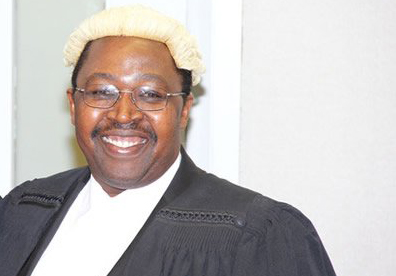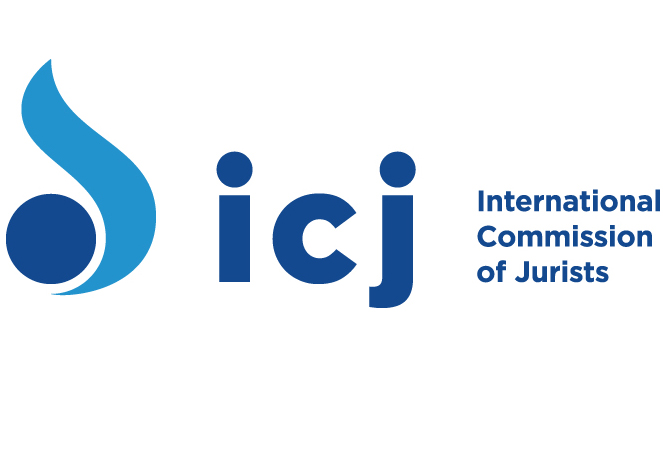 In an intervention to President Mugabe, the ICJ’s Centre for the Independence of Judges and Lawyers expresses alarm at the arrest of High Court Justice Benjamin Paradza for allegedly obstructing the course of justice.
In an intervention to President Mugabe, the ICJ’s Centre for the Independence of Judges and Lawyers expresses alarm at the arrest of High Court Justice Benjamin Paradza for allegedly obstructing the course of justice.
Justice Paradza has a history of passing judgements perceived as unfavourable to the ruling authorities.
20 February 2003
Mr. Robert Mugabe
President
Munhumutapa Building
Harare – Zimbabwe
Mr. Patrick Chinamasa
Minister of Justice and
Parliamentary Affairs
Private Bag 7704
Causeway – Zimbabwe
Fax No. 00263 4 772994
Dear Sirs,
The International Commission of Jurists (ICJ) consists of jurists who represent all the regions and legal systems in the world working to uphold the rule of law and the legal protection of human rights. The ICJ’s Centre for the Independence of Judges and Lawyers (CIJL) is dedicated to promoting the independence of judges and lawyers throughout the world.
We are writing to you to express our alarm at the arrest of High Court Justice Benjamin Paradza in his chambers on 17 February for allegedly obstructing the course of justice. Reportedly, Justice Paradza has been accused of trying to influence another judge presiding over a murder case involving one of his acquaintances. Justice Paradza was released on bail of 30,000 Zimbabwe dollars and was forced to surrender his passport. He was not asked to enter a plea. Justice Paradza reportedly also faces the alternative charge of attempting to persuade a judge to breach a section of the Prevention of Corruption Act.
Justice Paradza has a history of passing judgements perceived as unfavourable to the ruling authorities, including his order last month to release the opposition mayor of Harare, Elias Mudzuri, after he was arrested for holding a town meeting without police authorisation. Last year, Justice Paradza also ordered the release of opposition supporters abducted by followers of President Mugabe, and ruled that the eviction orders served on approximately 50 white farmers were illegal.
As you are aware, the ICJ had previously addressed a letter to you on 18 September 2002 regarding the arrest of retired High Court Judge Fergus Blackie on charges of contravening the Prevention of Corruption Act or “defeating or obstructing the course of justice”. The charges against Justice Blackie allegedly arose from his decision to overturn a fraud conviction in a criminal case without first having consulted a judicial colleague who had co-presided over the matter. Justice Blackie had earlier sentenced a prominent cabinet minister to three months in jail for contempt of court.
An independent judiciary is indispensable to the protection and implementation of human rights in a free society. Attacks against judges have a chilling effect on the independence of the judiciary, and severely undermine the administration of justice and the rule of law. For these reasons international human rights standards emphasise the obligation on States to ensure the independence of the judiciary.
In this regard, we call your attention to the United Nations Basic Principles on the Independence of the Judiciary, adopted by the General Assembly in 1985, which provide in relevant part that:
Principle 1: The independence of the judiciary shall be guaranteed by the State and enshrined in the Constitution or the law of the country. It is the duty of all governmental and other institutions to respect and observe the independence of the judiciary.
Principle 2: The judiciary shall decide matters before them impartially, on the basis of facts and in accordance with the law, without any restrictions, improper influences, inducements, pressures, threats or interferences, direct or indirect, from any quarter or for any reason.
In addition, the African Charter on Human and Peoples’ Rights, which was ratified by Zimbabwe in May 1986, provides that State Parties “shall have the duty to guarantee the independence of the Courts” (Article 26).
The ICJ is further concerned that all investigations into the alleged misconduct of Justice Paradza be done in a fair and impartial manner and in accordance with the International Covenant on Civil and Political Rights, which was ratified by Zimbabwe in April 1999. In particular, Article 14 (1) of the ICCPR provides that:
All persons shall be equal before the courts and tribunals. In the determination of any criminal charge against him, or of his rights and obligations in a suit at law, everyone shall be entitled to a fair and public hearing by a competent, independent and impartial tribunal established by law.…
Furthermore, the UN Basic Principles on the Independence of the Judiciary require that any charges or complaints “made against a judge in his/her judicial and professional capacity shall be processed expeditiously and fairly under an appropriate procedure” (Principle 17), and that “all disciplinary, suspension or removal proceedings shall be determined in accordance with established standards of judicial conduct” (Principle 19).
The ICJ therefore requests that your Government investigate the circumstances surrounding the arrest of Justice Paradza, with a view to ensuring that these charges are not politically motivated. The ICJ also urges that in this case, as in all its relations with members of the judiciary, your Government fully respect all international standards relating to the independence of the judiciary.
Yours sincerely,
Louise Doswald-Beck
Secretary-General
cc: H.E. Ambassador Boniface B. Chidyausiku
Permanent Mission of Zimbabwe to the UN
Office in Geneva
Chemin William Barbey 27
1292 Chambésy
Fax No. 022 758 3044

